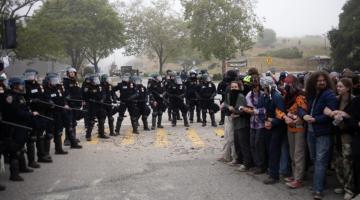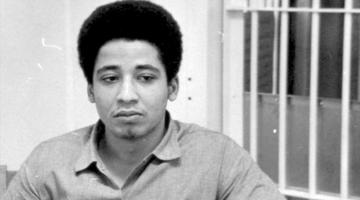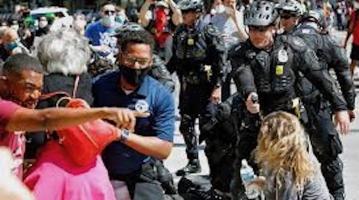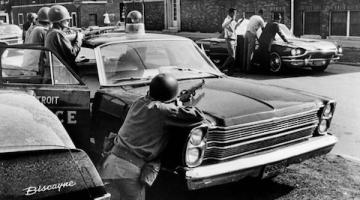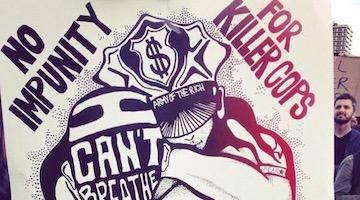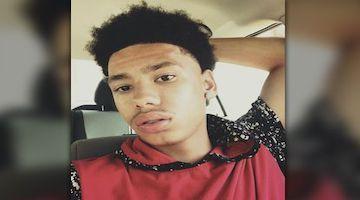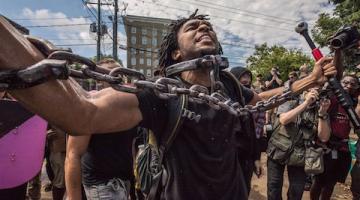Police violence is tied to other agents in criminal law enforcement, including and especially prosecutors.
“Without a mechanism to deter prosecutor misconduct, injustices will go without remedy.”
In the wake of George Floyd’s killing there has been an outpouring of ideas about how policing has to change. Among those who focus on individual blame for “bad apple” police officers, renewed criticism has been made of the legal doctrine of qualified immunity, which shields police officers from civil liability unless there is a prior court decision holding virtually identical conduct to be unconstitutional. Qualified immunity is a deeply problematic doctrine, and the Supreme Court or Congress should do away with it. But the well-deserved focus on ending qualified immunity should not lead us to miss the forest for the trees. In order to achieve lasting change, we must focus on systemic changes to our criminal justice system.
One avenue for such change is a reduction of our reliance on the police. Some activists are already having measured success here, in the form of the #DefundThePolice movement. This is heartening. But policing is only the most visible arm of a violent criminal legal system. We must pull back the lens still further, in recognition of the fact that violence attributed to the police is entangled in a much larger system of legal brutality. Police violence is not just the product of individual officers, and it is also not just a product of the departments that promote a culture that tolerates misconduct. It is tied as well to other agents in criminal law enforcement, including and especially prosecutors.
“Policing is only the most visible arm of a violent criminal legal system.”
Prosecutors bring the legal charges that support arrests. They also ignore unconstitutional police work, act out their racist beliefs on juries, and commit varying levels of unconstitutional to illegal conduct themselves in their zeal to win cases. For example, in a recent and rare Supreme Court victory for a criminal defendant, Curtis Flowers showed that the prosecutor in his case, who tried him six times for murder, struck forty-one of forty-two prospective black jurors across the six trials. More often, however, criminal convictions are overturned when the prosecutor is shown to have withheld evidence that would have exculpated the defendant. For example, in numerous cases it has been discovered after the fact that prosecutors did not disclose evidence showing that a prosecution witness was made promises or threatened by police before giving a statement helpful to the prosecution’s case. To the extent one might imagine these events are very rare, an internal review by the Brooklyn District Attorney revealed over twenty cases of prosecutorial misconduct in their office alone.
Although prosecutors play a powerful role in the mass incarceration of Americans, they have largely escaped attention in the current moment. This is a mistake. People who have been wronged by prosecutors may lose their liberty for decades. They may also lose their lives. Cameron Todd Willingham was executed in Texas for killing his children in a fire prosecutors claim he intentionally set. Their entire case was built on debunked fire “science” and the words of a witness whom prosecutors failed to disclose had made a favorable deal with the government. The evidence that Willingham was likely innocent was clear long before his execution, but prosecutors stonewalled the appeals process. These prosecutors, with the help of then-Governor Rick Perry, who refused to grant him clemency, and the board of pardons, which refused to consider new evidence, sent Willingham to his death.
“Prosecutors play a powerful role in the mass incarceration of Americans.”
Despite years of evidence of an epidemic of prosecutorial misconduct, there is almost no way for victims of such injustice to seek redress. Indeed, when people try to seek justice in civil suits against prosecutors who have violated their rights, legal barriers even more formidable than qualified immunity prevent them from doing so. Prosecutors are absolutely immune from liability, which means that they cannot be sued for their decisions as prosecutors, no matter how outrageous their conduct. The Supreme Court has held that absolute immunity protects prosecutors who knowingly used false testimony and suppressed evidence in a murder trial. Following the high Court’s lead, lower courts have granted absolute immunity to prosecutors who have falsified evidence, coerced witnesses, and known but failed to disclose police misconduct.
Absolute immunity prevents plaintiffs from seeking justice from individual prosecutors. And, given that an individual act of prosecutorial misconduct may be just the tip of the iceberg, just as an individual police officer’s bad actions often reflect systemic rot, it may make more sense to focus attention on the broader prosecutorial forces that allow this misconduct to occur.
But, thanks to another Supreme Court precedent, the courts have also failed as an avenue for systemic challenges to prosecutorial misbehavior. In order to challenge widespread misconduct—in a prosecutor’s office, police department, or other type of government agency—a plaintiff must bring what’s referred to as a Monell claim (based on a case decided in 1978), which requires proof of widespread failures to train, supervise, investigate, and discipline under similar circumstances. And to prove these widespread failures, the plaintiff must show that policymakers knew of virtually identical past misconduct and failed to take proper steps to prevent similar conduct from recurring.
It is worth noting that there are some disturbing parallels between these standards and those applying to qualified immunity. Qualified immunity protects individual police officers from liability unless a plaintiff can find a decision in which the Supreme Court or a court of appeal found virtually identical conduct to be unconstitutional. Monell protects governments from liability unless the plaintiff can show that policymakers there knew of virtually identical past misconduct and failed to take proper steps to prevent similar conduct from recurring through better supervision, training, and discipline. In current discussions about police reform, the dual challenges of qualified immunity and Monellhave spurred calls to end qualified immunity, and have also led some to suggest that the hurdles necessary to hold local government liable for systemic police misconduct be eliminated.
“Absolute immunity prevents plaintiffs from seeking justice from individual prosecutors.”
What has largely escaped attention in the current moment, however, is that the Monell requirements also apply to prosecutors’ offices. In principle, municipal liability could be a very useful way to change the culture of impunity prosecutors enjoy. However, as absolute immunity has made it virtually impossible to sue an individual prosecutor, the Supreme Court’s Monell doctrine has made it almost impossible for people to seek system-wide justice for prosecutorial misconduct.
The dual barriers to prosecutorial accountability posed by absolute immunity and Monell are on full display in the Supreme Court’s 2011 decision in Connick v. Thompson. In this case the Court reversed a jury verdict against New Orleans and its District Attorney, Harry Connick Sr., awarded because a team of his prosecutors violated their constitutional obligation to disclose ten pieces of exculpatory evidence—what are generally referred to as Brady violations—in a case that sent the plaintiff, John Thompson, to death row for robbery and murder.
Among the undisclosed pieces of evidence was a blood sample from the crime scene suggesting that the perpetrator had a different blood type than Thompson. But the prosecutors did not reveal this information to Thompson or his legal team. After Thompson had been imprisoned fourteen years, and just a month before he was scheduled to be executed, his lawyers’ investigator came upon a microfiche with images of the lab report that Thompson’s innocence. The report had been provided to the prosecutors two days before Thompson’s trial began but had never been disclosed to Thompson’s attorneys. Thompson was found not guilty after a retrial. He then brought a lawsuit against the prosecutors for his years of wrongful imprisonment.
Thompson could not bring claims directly against the assistant district attorneys who committed the Brady violations because of their absolute immunity. Instead his lawsuit challenged the conduct of the Orleans Parish district attorney’s office as a whole through a Monell claim. Thompson argued that the prosecutor’s office had a pattern of hiding exculpatory evidence. He showed that the Orleans district attorney’s office had had four convictions overturned for Brady violations over the prior ten years, a large number given how many of these violations go unredressed. A jury awarded Thompson $14 million against New Orleans parish—as the New York Times put it, “$1 million for every year he was isolated for 23 hours a day in a windowless cell, awaiting his execution.”
“The Supreme Court’s Monell doctrine has made it almost impossible to seek system-wide justice for prosecutorial misconduct.”
But the Supreme Court reversed that decision, ruling 5–4 that those prior violations would not have put Harry Connick, Sr., on notice of the need to better train his employees. It was not enough that there had been a series of Brady violations that had resulted in overturned convictions because those Brady violations “could not have put Connick on notice that the office’s Brady training was inadequate with respect to the sort of Brady violation at issue here.” Why? Because none of those other Brady violations “involved failure to disclose blood evidence, a crime lab report, or physical or scientific evidence of any kind.” In other words, Connick would have to be put on notice of the need not only to instruct his attorneys about the requirements of Brady, but also to instruct his attorneys about Brady obligations as they applied to these specific kinds of evidence. This parsing of past Brady violations makes no sense. Brady obligations do not attach differently to different types of evidence—prosecutors are obligated to turn over all exculpatory evidence, no matter the type.
In the wake of this miscarriage of justice, Thompson’s $14 million judgment was overturned, and he ended up with nothing for the years he spent on death row. But the most painful part, as Thompson explained in an editorial one month after the Court’s decision was issued, was the inability to hold accountable the prosecutors who “hid evidence, sent me to prison for something I didn’t do and nearly had me killed.”
Although eliminating qualified immunity for the police is an important goal, doing so would change nothing about the outcome of Thompson’s case. Without a mechanism to deter prosecutors individually, or a means to challenge widespread misconduct in prosecutors’ offices, these types of injustices will go without remedy.
As others have argued, prosecutors can play a more active role in policing their attorneys and investigating allegations of prosecutorial misconduct. But we should not simply leave it up to prosecutors to oversee their own. The courts have an important—if incomplete—role to play. As Justice Ginsburg observed in her dissent in Connick v. Thompson, “The prosecutorial concealment Thompson encountered . . . is bound to be repeated unless municipal agencies bear responsibility . . . for adequately conveying what Brady requires and for monitoring staff compliance.” Abolishing absolute immunity and changing the legal hurdles required for civil litigants to hold prosecutors’ offices liable are other ways that over-policed and over-prosecuted communities can take back some power from the criminal legal machine.
Kate Levine is an Associate Professor of Law at the Benjamin N. Cardozo School of law. She writes about the police and reducing the carceral state. Find her on Twitter @klevine02.
Joanna Schwartz is Professor at UCLA School of Law, where she studies police misconduct and civil rights litigation. Her recent focus has been on qualified immunity, and she has authored several studies that undermine the Supreme Court's various policy justifications for the doctrine. Find her on Twitter at @JCSchwartzProf.
This article previously appeared in Boston Review.
COMMENTS?
Please join the conversation on Black Agenda Report's Facebook page at http://facebook.com/blackagendareport
Or, you can comment by emailing us at comments@blackagendareport.com


